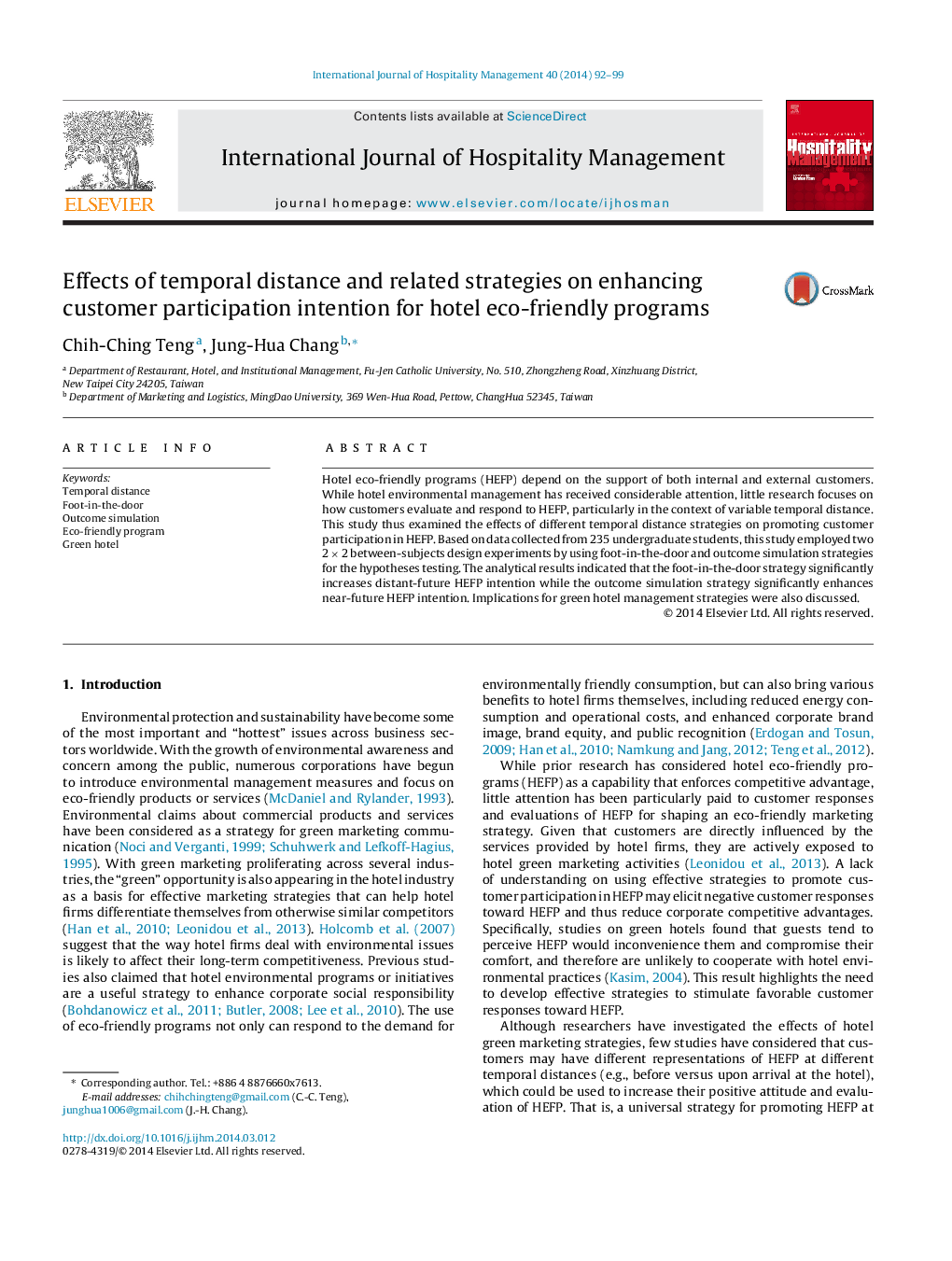| Article ID | Journal | Published Year | Pages | File Type |
|---|---|---|---|---|
| 1009362 | International Journal of Hospitality Management | 2014 | 8 Pages |
Hotel eco-friendly programs (HEFP) depend on the support of both internal and external customers. While hotel environmental management has received considerable attention, little research focuses on how customers evaluate and respond to HEFP, particularly in the context of variable temporal distance. This study thus examined the effects of different temporal distance strategies on promoting customer participation in HEFP. Based on data collected from 235 undergraduate students, this study employed two 2 × 2 between-subjects design experiments by using foot-in-the-door and outcome simulation strategies for the hypotheses testing. The analytical results indicated that the foot-in-the-door strategy significantly increases distant-future HEFP intention while the outcome simulation strategy significantly enhances near-future HEFP intention. Implications for green hotel management strategies were also discussed.
